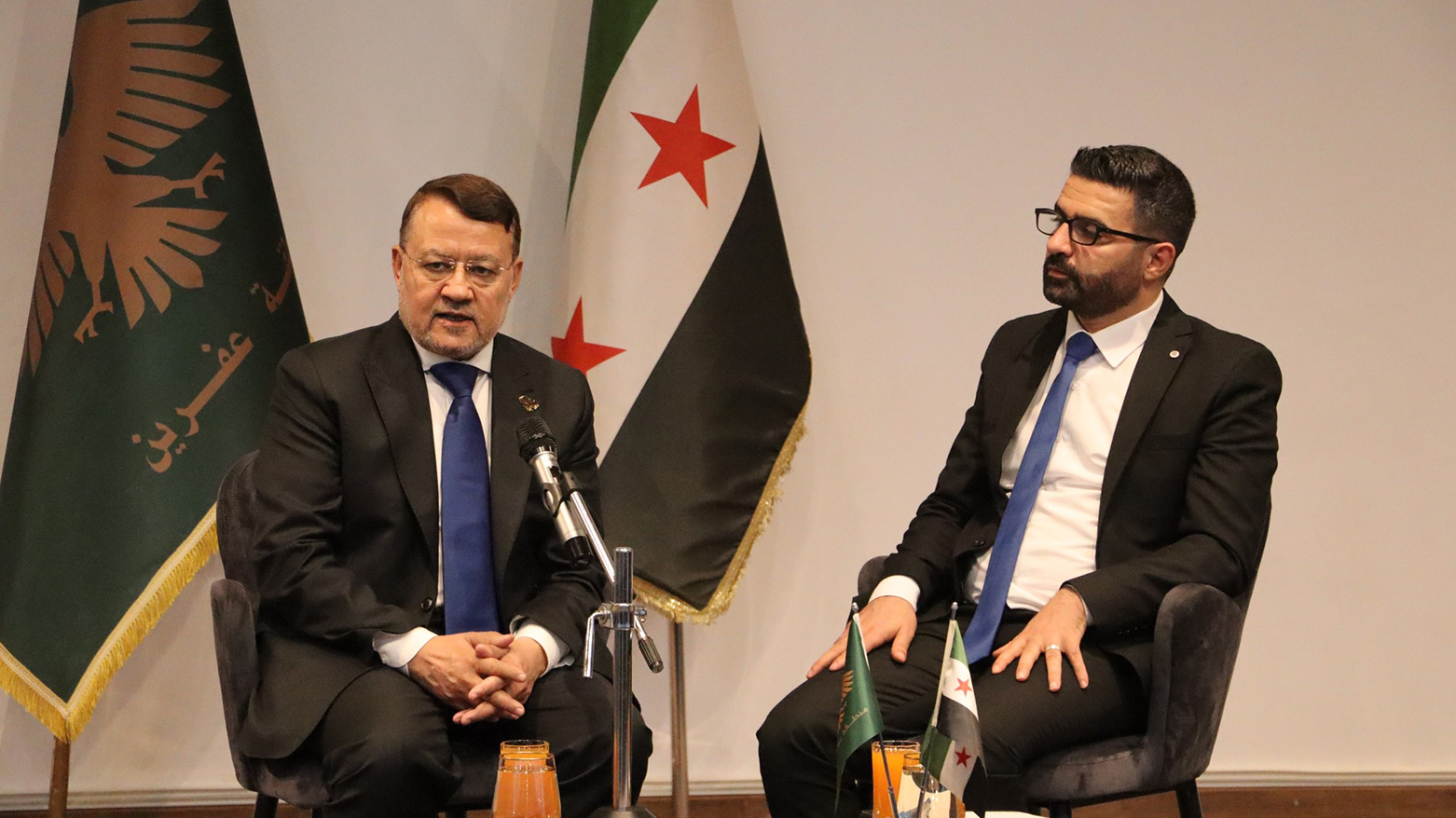Syria Touts National Cohesion with Kurds, Despite Ongoing Restrictions
Syria promotes national cohesion with Kurds as a presidential advisor visits Afrin and a parliamentary delegation meets with Damascus' Kurdish community in Rukn al-Din. However, Kurdish language classes suspended in Afrin's schools and Newroz excluded from Syria's holiday calendar.

ERBIL (Kurdistan24) – The Syrian Presidential Media Affairs Advisor, Ahmad Zedan, visited Afrin on Thursday under directives from President Ahmad al-Sharaa, as part of a national outreach initiative aimed at strengthening dialogue and social unity throughout the country.
During the visit, Zedan met with local residents and officials in Afrin, located in northwestern Syria (Western Kurdistan), holding a political forum to listen to public concerns. “President Ahmad al-Sharaa’s guidance was clear — we must meet our citizens in Afrin and listen to them directly,” Zedan said, emphasizing that the main goal was to “strengthen social cohesion and understand the realities on the ground.”
He described the “greatest lesson before Syria today” as the need to reinforce national unity, stressing that “every Syrian — whether from Afrin, Azaz, Idlib, Aleppo, or Damascus — bears equal responsibility for building this new state that has emerged after 63 years of hardship.”
Zedan affirmed that the government seeks to maintain equal proximity to all Syrian regions, saying, “Without viewing others through ethnic or sectarian lenses, we aim to bring Syrians closer together, because Syria is the nation that unites us all.”
However, Zedan’s visit coincided with growing discontent among Kurdish residents following the suspension of Kurdish language education in Afrin’s schools earlier this month. On October 15, Kurdish teachers and students from the Afrin Teacher Preparation Institute formally appealed to Aleppo Governor Azzam Gharib, Education Minister Mohammad Turko, and Afrin District Head Masoud Battal, demanding the immediate reinstatement of Kurdish classes that were “halted without explanation.”
The appeal, signed by educators, students, and parents, condemned the measure as “unjustified and damaging to Syria’s cultural diversity,” urging authorities to respect the Kurdish language as part of the nation’s pluralistic identity.
Meanwhile, in Damascus, a delegation from the Syrian People’s Assembly visited the Kurdish-majority Rukn al-Din district, holding an extensive meeting at the neighborhood’s Cultural Center to strengthen ties between the transitional government and local communities.
Hasan Sheikh, a member of the Assembly, told Kurdistan24 that the goal was “to affirm that all Syrians are one people, without sectarian or ethnic discrimination.” He said, “Our mission is to bring together all components of Syrian society to lay the foundations for a new, inclusive Syria.”
Residents at the meeting voiced concerns over the lack of public services, damaged infrastructure, and daily living difficulties. Assembly member Adnan Khatib highlighted the importance of such gatherings, saying: “We pledge to continue these dialogues across Damascus to bring the people’s true voices, hopes, and demands to the Parliament for action.”
The session concluded with an agreement to establish coordination committees to follow up on local needs and enhance civic engagement.
Despite these overtures toward inclusion, recent government decisions suggest persistent gaps between rhetoric and policy. Earlier this month, President Ahmad al-Sharaa issued Decree No. 188 of 2025, reforming Syria’s national holiday calendar but notably excluding Newroz, the Kurdish New Year, from official recognition — a continuation of its long and politically charged history of omission.
The omission of Newroz echoes decades of state suppression under the Baath regime, when Kurdish celebrations were frequently banned or met with heavy crackdowns. The defining moment came on March 21, 1986, when security forces opened fire on Kurdish demonstrators in Damascus, killing Suleiman Muhammad Amin Adi, whose death became a symbol of state violence against Kurdish identity.
Two years later, in 1988, then-President Hafez al-Assad issued a decree declaring March 21 as “Mother’s Day” — a move widely interpreted by Kurdish communities as an attempt to overwrite the significance of Newroz and neutralize its cultural meaning.